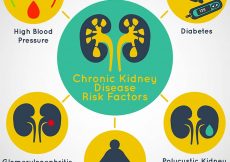Oral aversion is a sensory-based feeding difficulty where a person is reluctant to bring anything near their face or mouth (1). Babies with oral aversion refuse to feed, eat, or drink due to the fear or dislike of the sensation that eating/drinking causes in and around the mouth (2). Infants in the NICU who are fed using feeding tubes are most vulnerable to develop oral aversion. However, a full-term, healthy baby can also develop aversion due to several reasons. Knowing these reasons and the way to overcome oral aversion in babies is vital to avert growth and development issues in the future.
This post shares causes of oral aversion in babies, its signs and symptoms, risks it can raise, and ways to manage and treat it.
Signs And Symptoms Of Oral Aversion
Persistent refusal to feed even when hungry/thirsty is one of the most prominent signs of oral aversion (2). However, it isn’t the only sign to make any diagnosis. In most cases, a baby with oral aversion displays additional signs and symptoms, such as:
- They become fussy and distressed when put into a breastfeeding position or offered a bottle.
- They arch their back and try moving away from the breast or bottle
- They feed when they are either drowsy or asleep
- They show poor growth than expected for the age
Babies who have transitioned to a weaning diet could:
• Consume less food for their age, i.e., take fewer sips of milk or bites of food
• Gag, choke, or vomit the food or drink they have ingested
• Begin eating food but quickly pull away due to fear/anxiety associated with feeding
Some babies and toddlers with oral aversion may even display discomfort and distress while brushing teeth or washing the face. If your baby or toddler persistently refuses to feed and displays any of the above signs/symptoms, consult your doctor promptly to diagnose the cause and seek a resolution.
Causes Of Oral Aversion In Babies
Babies can develop oral aversion due to several reasons. The following are some of the common reasons.
1. Frequent intubation and tube feeding
According to the National Association of Neonatal Nurses (NAAN), approximately 80% of premature infants could develop difficulties with oral feeding (3).
Preterm babies require medical feeding support in the form of:
- Intubation and suction tubes for maintaining proper breathing (oxygenation)
- Nasogastric (NG) tube that goes from the nose to the back of the throat to pass the feed
- Orogastric (OG) tube that goes from the mouth to the stomach to pass the feed
These tubes often cause painful or uncomfortable stimuli that make premature babies, especially those who have spent a long time in the NICU, susceptible to develop oral aversion. As a result, they turn away from everything that comes near their mouth or face.
2. Motor and sensory issues
Oral motor issues due to weak face and neck muscles or cleft palate make moving food in the mouth and swallowing difficult (4). Similarly, oral sensory disorders make an individual sensitive to the taste, smell, and feel of the food or feed around the mouth. It could cause them to eat specific foods and refuse to eat other foods. Both of these conditions cause babies or toddlers to develop an oral aversion to foods.
3. Gastroesophageal reflux disorder (GERD)
Babies, especially those born preterm, often struggle with acid reflux, which happens due to an underdeveloped esophageal valve. Reflux causes the gastric juices and stomach acid to flow from the stomach to the food pipe, causing a painful burning sensation. It’s this sensation that makes babies fear feeding and develop oral aversion (5). Congenital malformations, such as congenital diaphragmatic hernia, could also cause GERD in babies (6).
4. Negative feeding experience
Babies can readily associate feeding with fear, pain, and anxiety after a negative feeding episode, such as choking or force-feeding (7). It’s this association that causes the development of oral aversion in several babies. Hence, you must stay vigilant while feeding your baby to minimize the risk of gagging and choking that could make a baby fear feed or mealtimes.
Risks Associated With Oral Aversion
Oral aversion can be frustrating and tiresome for parents, caregivers, and babies, giving way to long-term issues, such as:
- Poor nutritional status hampering proper growth and development of the baby
- Constant stress for the parents and the baby
- Lower parent-infant bonding
- Behavioral issues, such as crankiness and irritability
- Poor socio-emotional growth
- Lack of confidence in parents regarding their ability to feed and care for their baby
Treatment For Oral Aversion In Babies
Treating a baby with oral aversion usually involves a multidisciplinary approach where a team of several experts, such as a pediatric gastroenterologist, pediatric nutritionist, occupational therapist, psychologist, and speech therapist, work together to locate and treat the cause of oral aversion. For instance, to treat oral-sensory issues in babies, the expert may recommend desensitization therapy.
In this therapy, a child is fed the problematic food repeatedly until the child adjusts to its taste, smell, and texture. Alternatively, the expert may advise changing the way the food is fed to babies by changing the utensils you use until the baby improves.
This approach will be different if the baby has oral aversion due to oral motor issues. In such cases, the expert will work on the cheek, lips, and tongue exercises to improve their ability to chew and swallow food. Likewise, some approaches may use pain-relieving techniques and medications to alleviate feeding-related pain that may be causing oral aversion in babies.
Overall, the treatment for oral aversion depends on its cause. Based on the cause, specialists will work on the baby to help them overcome their oral feeding difficulties.
Can You Prevent Oral Aversion In Babies?
Preventing oral aversion in babies isn’t always possible, especially when caused by congenital malformations or oral sensory issues. However, you can avoid oral aversion caused by prolonged NICU stay by putting the following simple tips in practice under medical guidance (8).
- Swabbing: Infants on orogastric or nasogastric tube feed are most susceptible to losing stimulation around their mouth. In such cases, regularly swabbing their mouth and lips with a warm, wet, soft washcloth can help stimulate their mouth area and offer oral stimulation even when they aren’t sucking.
- Non-nutritive sucking: Give your baby your clean little finger or a pacifier to suck on. It will help maintain their oral stimulation and also refine sucking. As the baby grows, you can give them pacifiers dipped in baby food or puree to suck on. Alternatively, you can provide them with baby foods in a baby-friendly bowl or plate to dip their fingers and suck on them.
- Cue-based feeding: You may give the baby more control by waiting for their cues while feeding. For instance, if your baby’s medical condition allows, place them in an elevated, side-lying feeding position or sitting position with horizontal milk flow. This position is favorable to ensure the baby regulates milk flow and establishes suck-swallow-breath coordination (9). This is also called paced bottle-feeding. In addition, it helps prevent gagging that happens when the baby lies in the supine position.
- Self-pacing (ISP) bottle: Self-pacing (ISP) bottles are different from standard bottles. In these bottles, the milk doesn’t drip from the nipple if the baby stops sucking (10). Also, no vacuum buildup happens when a bottle is about to become empty, meaning the baby doesn’t have to suck hard for milk to come out.
These attributes are vital for a preemie with feeding difficulty as they allow the baby to self-regulate milk flow and establish suck-swallow-breath coordination, necessary for comfortable feeding.
Besides these, maintaining a preemies oxygenation during feeding is vital to avert oral aversion. A preterm baby who isn’t able to breathe while feeding is likely to choke or gag while feeding, giving in the way to negative feeding experiences.
Oral aversion in babies is a feeding difficulty that can be extremely worrying and tiresome for parents and caregivers. However, one can manage it well with proper medical guidance, patience, and perseverance. The treatment or management of oral aversion relies on its cause. Hence, prompt identification and care can be helpful in its effective resolution.
References:
MomJunction’s articles are written after analyzing the research works of expert authors and institutions. Our references consist of resources established by authorities in their respective fields. You can learn more about the authenticity of the information we present in our editorial policy.



































